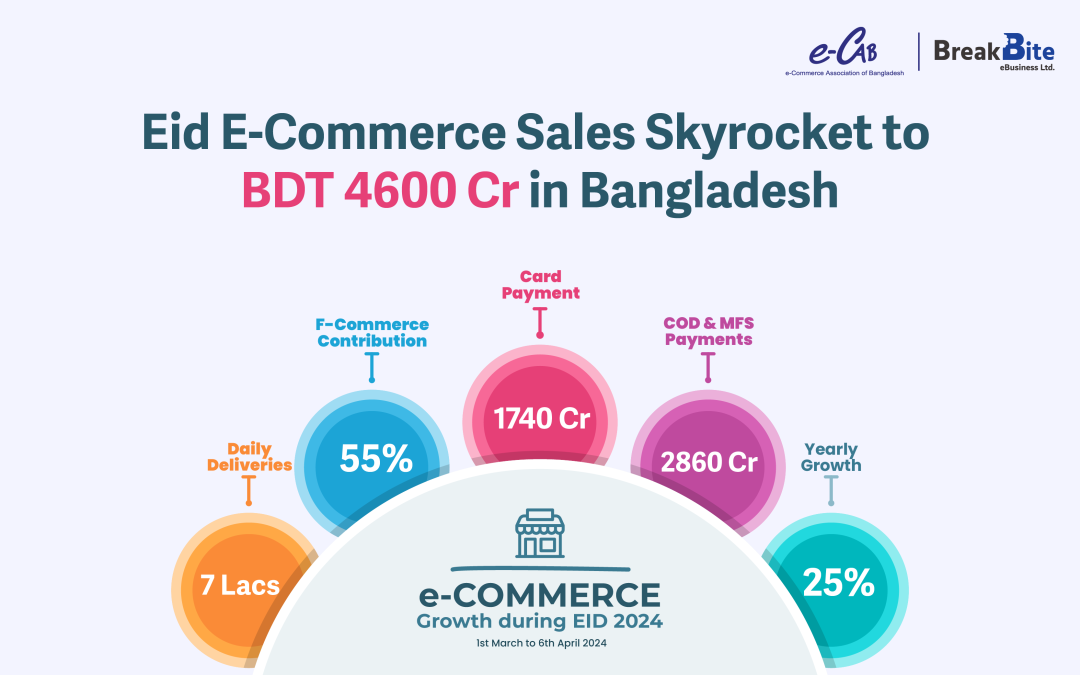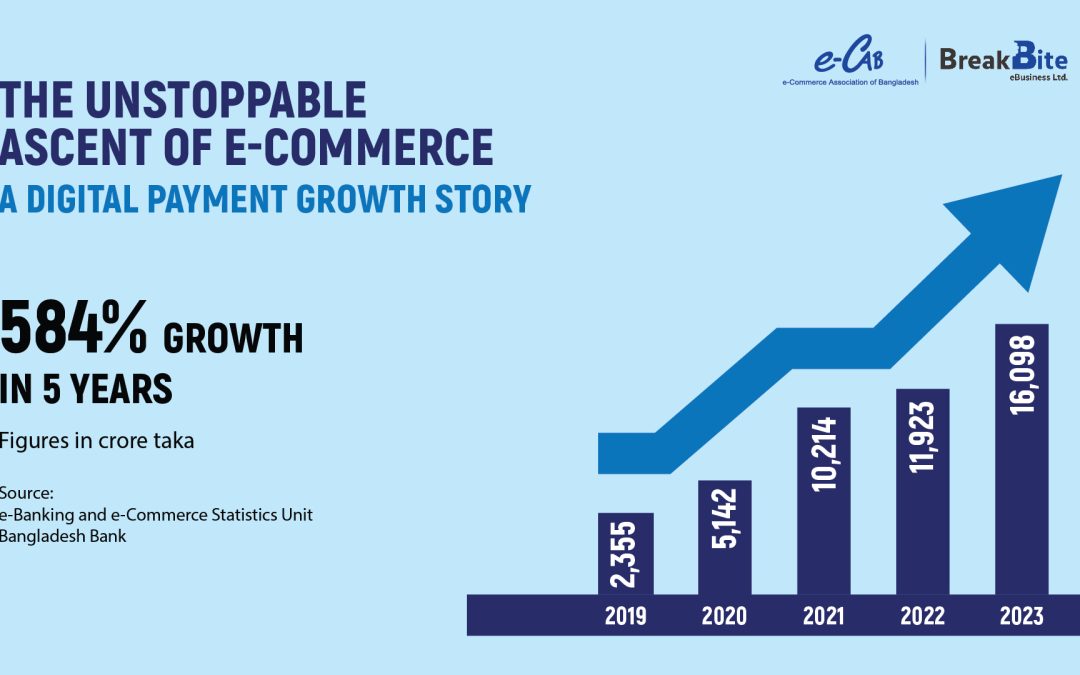
The E-Commerce Boom During Eid-ul-Fitr: A Record-Breaking Celebration
As Bangladesh celebrated Eid this April, alongside the Bengali New Year, the e-commerce sector witnessed unprecedented growth, marking a significant milestone in digital commerce. According to a recent study conducted by BreakBite eBusiness , in collaboration with e-Commerce Association of Bangladesh (e-CAB), the total e-commerce transactions in March soared to BDT 4,600 crore, with digital payments via credit and debit cards reaching a record high of BDT 1,740 crore.
This year’s Eid festival, falling on April 11th, closely followed by the Bengali New Year on April 14th, provided a unique boost to sales, particularly favoring locally made products. This surge in demand is reflected in the delivery of an average of 7 lakh products daily throughout March, culminating in a staggering 2.5 crore products delivered from March 1st to April 6th. Comparatively, last year’s e-commerce transactions during the Eid festival totaled BDT 3,700 crore, indicating a robust 25% growth year-over-year.
Interestingly, approximately BDT 2,800 crore of the overall BDT 4,500 crore transacted came from Cash on Delivery (COD) and Mobile Financial Services (MFS) transactions. This shift underscores the growing reliance on and trust in digital payment solutions, though COD remains a significant player in the e-commerce payment landscape.
The demand spectrum this year saw electronics, particularly air conditioners and refrigerators, leading the categories as the summer season approaches. The second most popular category was Bengali fashion wear, reflecting the cultural significance of the Eid and Bengali New Year celebrations.
Top Sellers and Market Dynamics
In the electronics segment, leading platforms included Daraz , Pickaboo.com , BDSHOP.COM , Startech, Smart, Singer Bangladesh Ltd , Walton Group and RANGS eMART . Meanwhile, the fashion category was dominated by BRAC-Aarong and Deshi Dosh brands, with a notable portion of sales driven by Facebook commerce (f-commerce) entrepreneurs and Food and grocery delivery led by foodpanda & Chaldal .
With over 8,000 e-commerce companies active during this period and around 2 lakh f-commerce entrepreneurs participating, the market composition highlighted the significant contribution of f-commerce to the industry, accounting for 55% of total sales.
Local Manufacturing and Logistics Partners
The recent dollar crisis and international trade challenges have inadvertently bolstered the local manufacturing sector, with consumers increasingly opting for Made-in-Bangladesh products. Logistics played a pivotal role in meeting the delivery demands, with Steadfast Courier Limited and Pathao covering 40% of deliveries. Other notable logistics partners included REDX , DEX, Sundarban Courier Services Pvt. Ltd., Paperfly , Bili , Bahok Courier Limited , and more.
Digital Payments Leading the Way
The digital payment landscape was led by bKash Limited , Nagad , SSLCOMMERZ , aamarPay , alongside other banking operators facilitating transactions through VISA, Mastercard, and Amex, highlighting the diverse payment preferences of the Bangladeshi consumer.
Conclusion
This Eid season’s e-commerce boom not only signifies a shift towards online shopping in Bangladesh but also reflects the growing confidence in digital payments and the preference for locally manufactured products. As the industry continues to evolve, the insights from BreakBite eBusiness Ltd. and e-CAB’s study offer valuable foresight into the future of e-commerce in Bangladesh.
Asif Ahnaf
CEO, BreakBite eBusiness Ltd.
Finance Secretary, e-CAB

